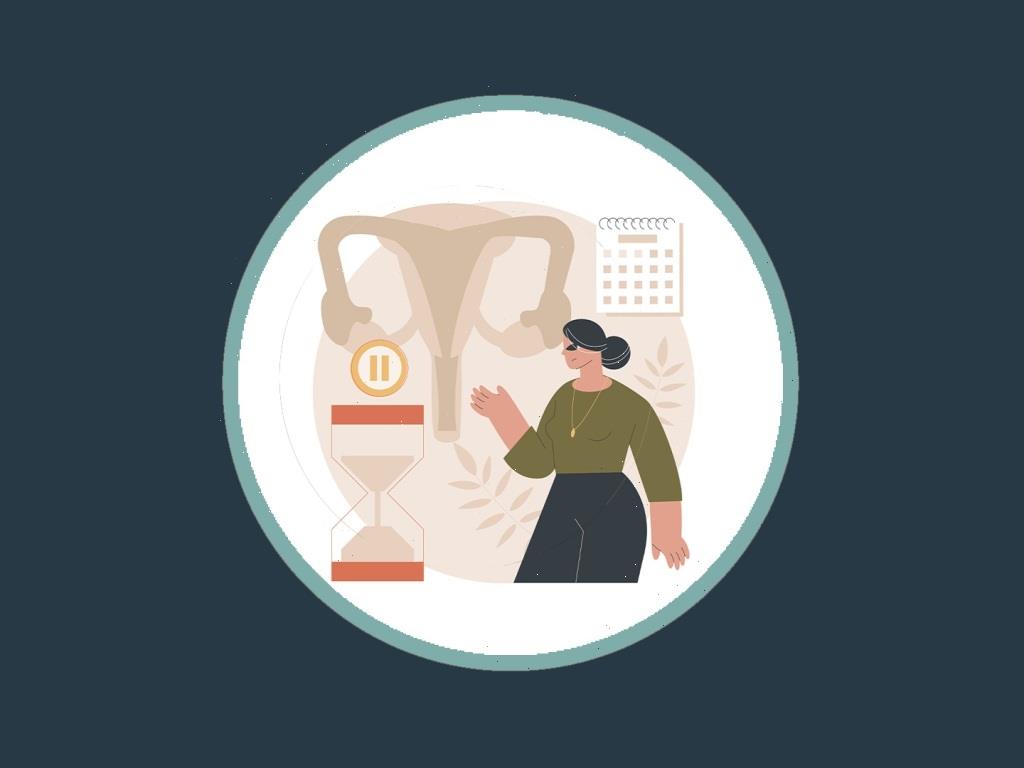We all remember being right on the cusp of puberty — and even a few years before — and being sat down by one of the adults in our lives (or a weird VHS in a health class) that gave you the talk about the exciting, natural and inevitable changes that were happening in your body as you grow. Unfortunately, that same kind of talk is not given to us when we continue to grow as adults and hit the stages of perimenopause, menopause and post-menopause.
And that also means that you’re very likely not given the real basics about what those processes are, the differences and similarities between each of them and what resources are available to you to help you keep feeling like yourself during these changes. While we can’t hook you up with a retro health class VHS, we can give you the breakdown of what they are and what you need to know about them.
What are perimenopause, menopause and post-menopause?
The word menopause refers to the period when a person with a uterus who previously had periods or could pregnant no longer has their monthly cycle. The prefixes of peri- and post- refer to the periods “before or around” menopause and after it — referring to the near-decade of your cycle winding down (becoming irregular and eventually ceasing) and the year after you’ve officially stopped getting your period.
“Menopause is a point in time 12 months after a woman’s last period,” according to the National Institute on Aging. “The years leading up to that point, when women may have changes in their monthly cycles, hot flashes, or other symptoms, are called the menopausal transition or perimenopause.”
But what’s happening in your body during that time?
“A woman may begin to notice some changes in her body and menstrual cycle as a result of fluctuating hormone levels,” said Dr. Kiarra King, MD, FACOG, a board certified obstetrician and gynecologist previously told SheKnows, explaining the changes experienced in perimenopause.
Peri-menopause, typically starting when a person is in their 40s (but some people experience it earlier or later), can last between seven and 14 years as the body begins to produce less quantities of the hormones estrogen and progesterone. If you’re still having unprotected sexual activity and don’t want to become pregnant, you should still have some sort of birth control on deck during this period. Though, menopause can also be triggered earlier by diseases or treatments (ex: some cancer treatments) or if a person has their ovaries surgically removed for some reason.
Every person’s body is unique and just like how everyone’s periods are different, so is everyone’s menopausal transition. As the body no longer puts the same energy toward producing reproductive hormones there can be changes in how their body looks and feels (where they hold weight is a common shift for many people), physical function, bone and heart health, along with the other more well known symptoms like sleep issues due to vasomotor symptoms (night sweats and hot flashes, baby!), mood changes, bladder and vaginal issues, changes in sexual desire and decreasing fertility.
By the time a person has reached post-menopause, they may still feel some of the lingering symptoms of the earlier stages, as a result of having less estrogen. Many people continue to have hot flashes, sleep disruption, mood changes and vaginal dryness post-menopause as well and are advised to talk to their doctors if the symptoms become disruptive or if they experience post-menopausal bleeding.
As estrogen protects both your bones and heart, it’s easier to get fractures or injuries and you’re at a higher risk for Osteoporosis as a person loses an average of 1-2 percent in bone density each year post-menopause, according to the Cleveland Clinic. Heart-wise, the protections from heart attacks, heart disease and strokes that come with higher estrogen production, they add, paired with less movement in your lifestyle can contribute to higher cholesterol and blood pressure that up the risk of cardiovascular diseases as well.
How can you be prepared for each stage?
It’s important to know what you might be experiencing during each stage of your peri-menopausal, menopausal and post-menopausal journey and be ready to have a conversation with your healthcare provider about what will best allow you to keep living the life you most want to live. Your annual with your OBGYN will still need to happen (yes, even post-menopause) and it might even help to start having conversations with them sooner than later about your family history, reproductive health plans, and lifestyle choices that can help make the change something you’re more comfortable with.
There are also treatment options you can discuss with your doctor if symptoms during any of these periods become so overwhelming that they interfere with your ability to live your life.
Every person with a uterus is going to undergo menopause sooner or later and there’s no need for a culture of silence or confusion to keep us from fully understanding and fully living in our bodies as we age. The more information you can get on what your body is going through, the happier and healthier you will be for years to come. So, talk to your doctor to get the help you deserve to enter each stage prepared and informed.
Source: Read Full Article

